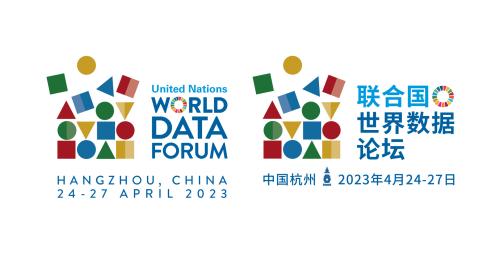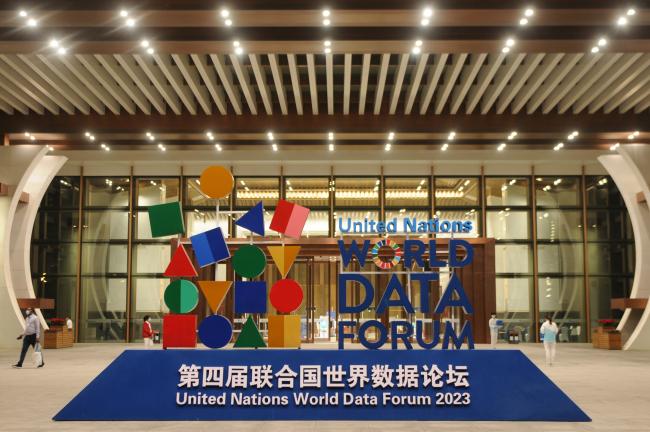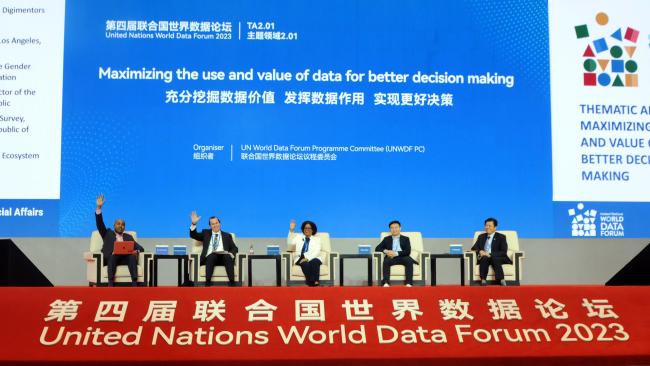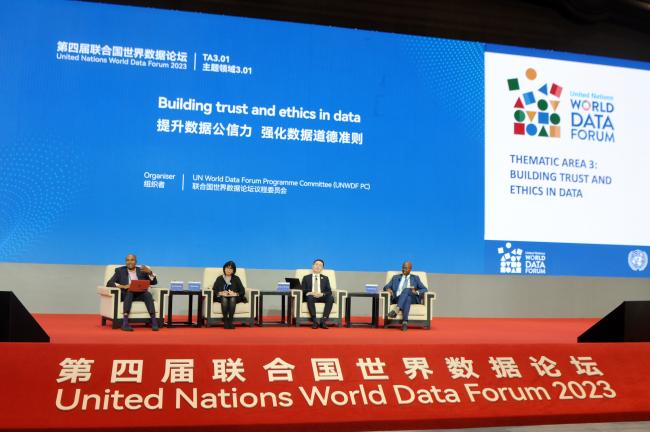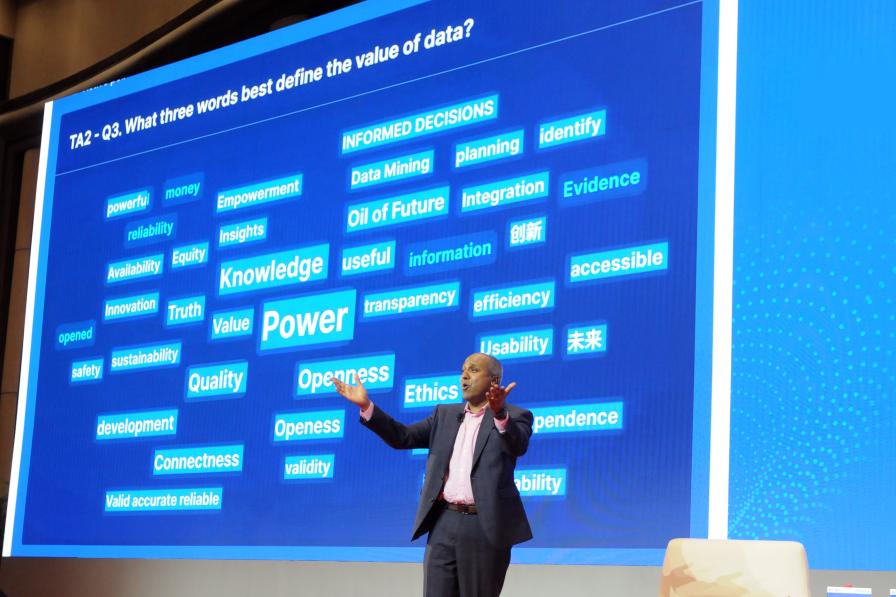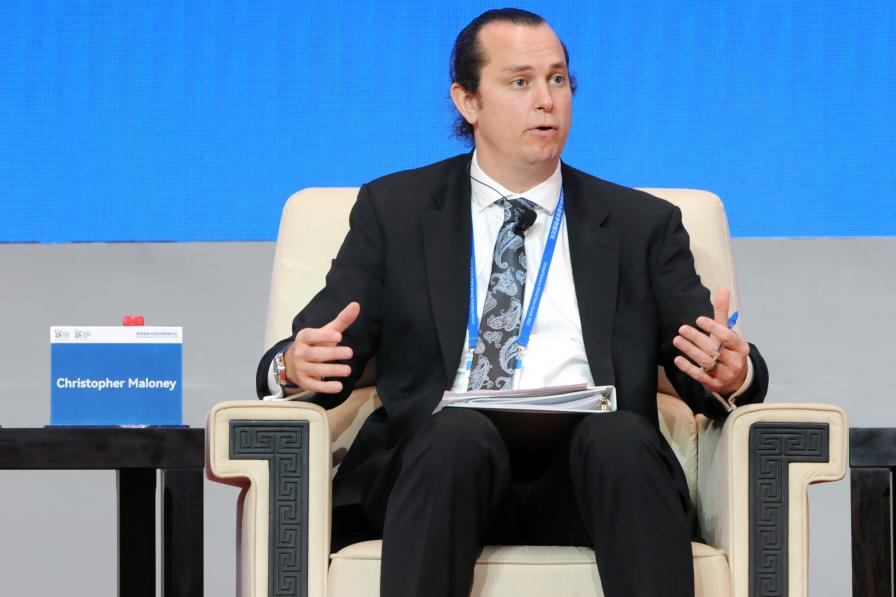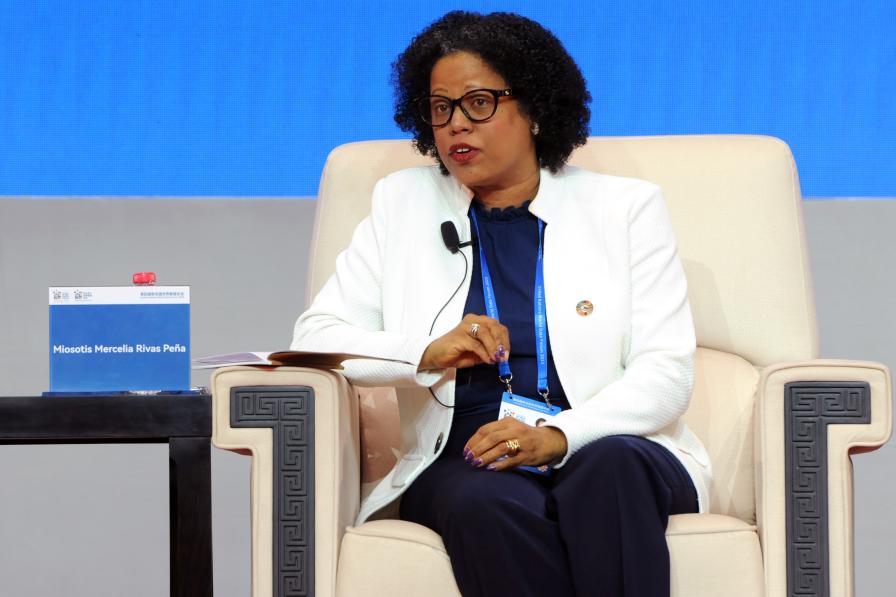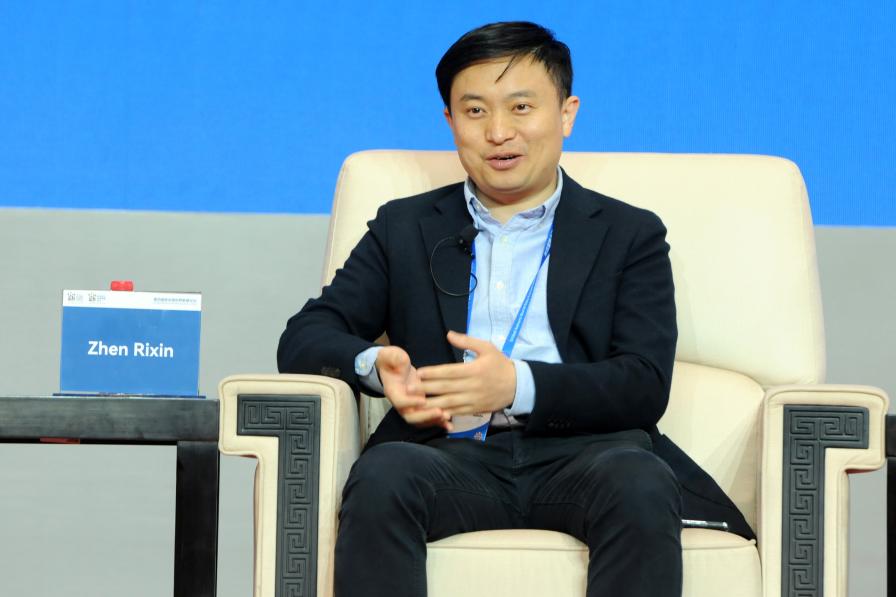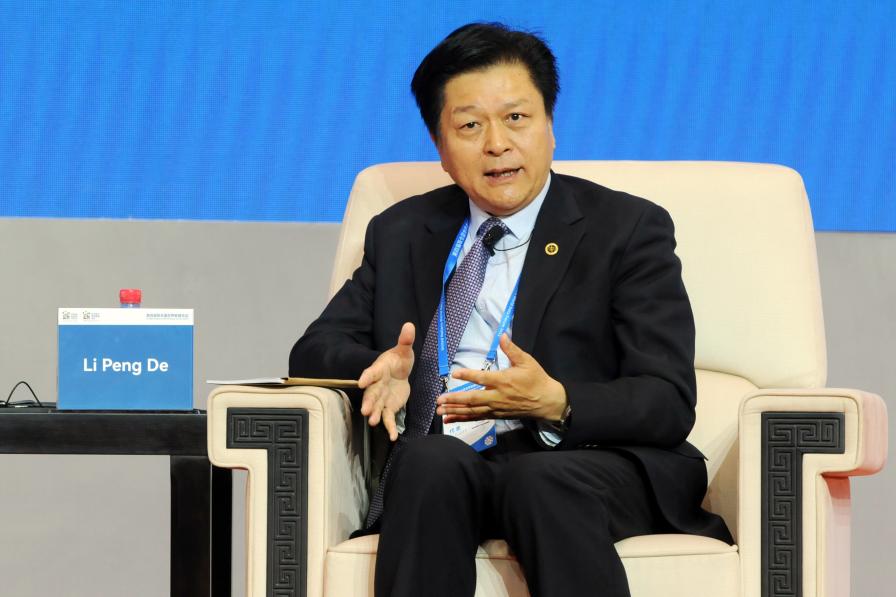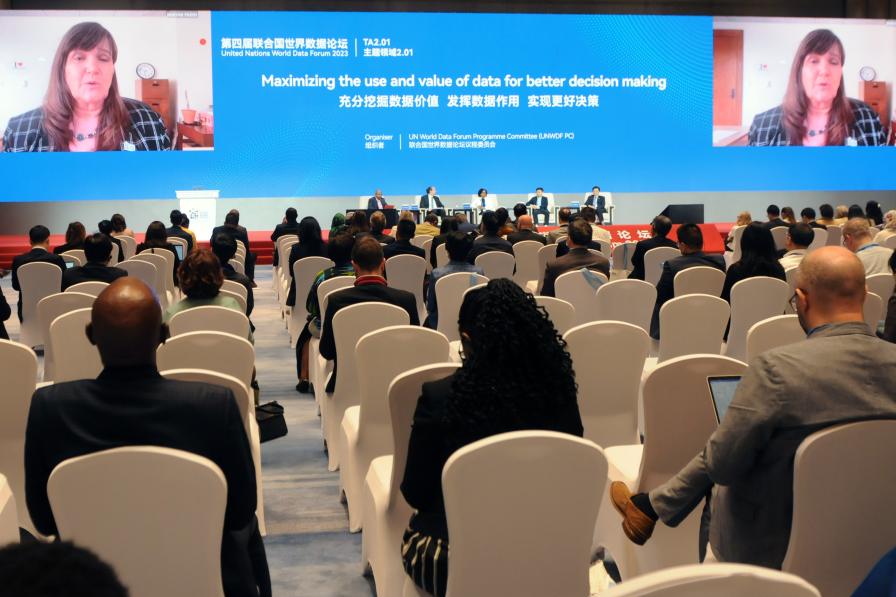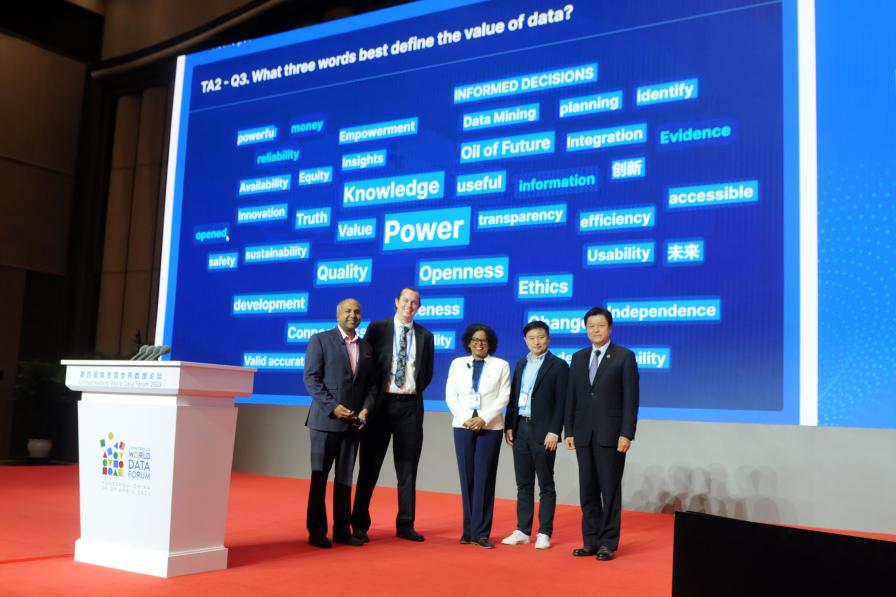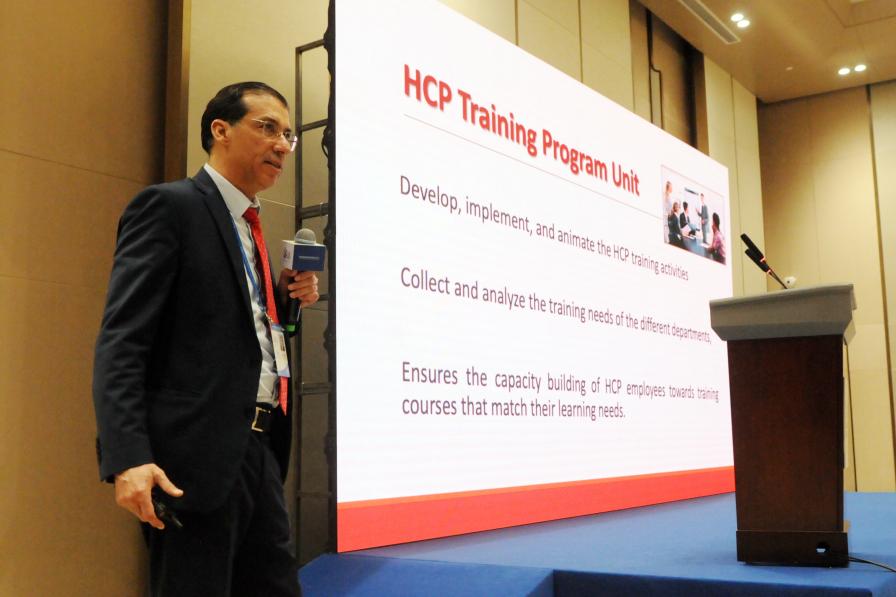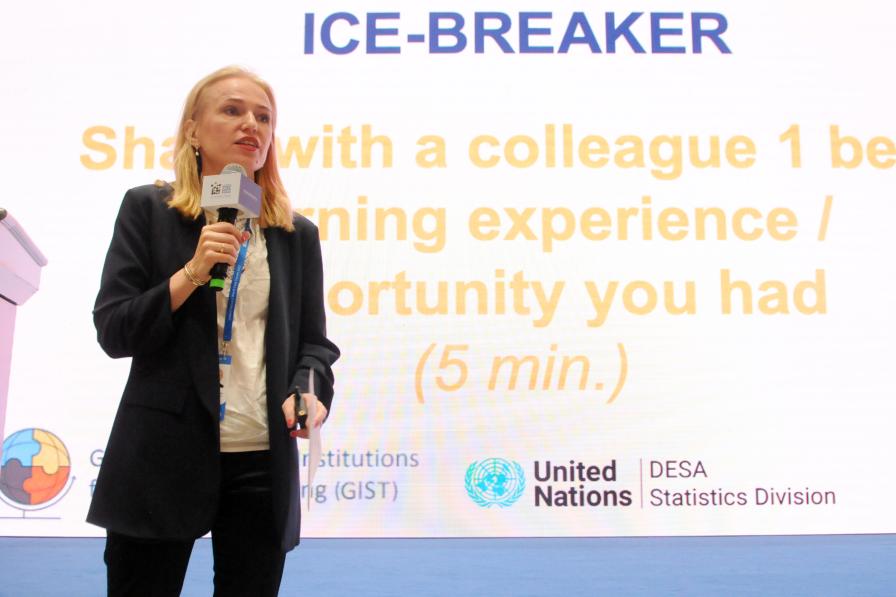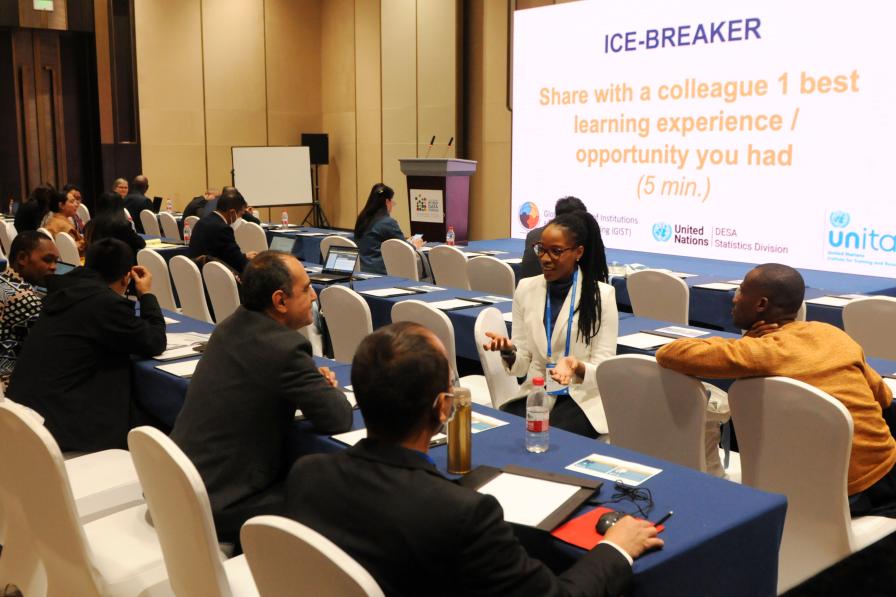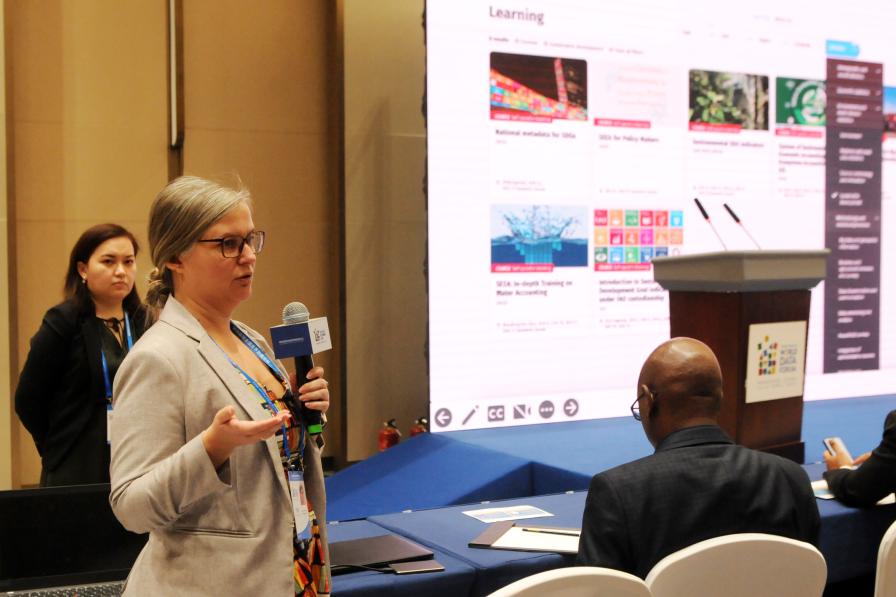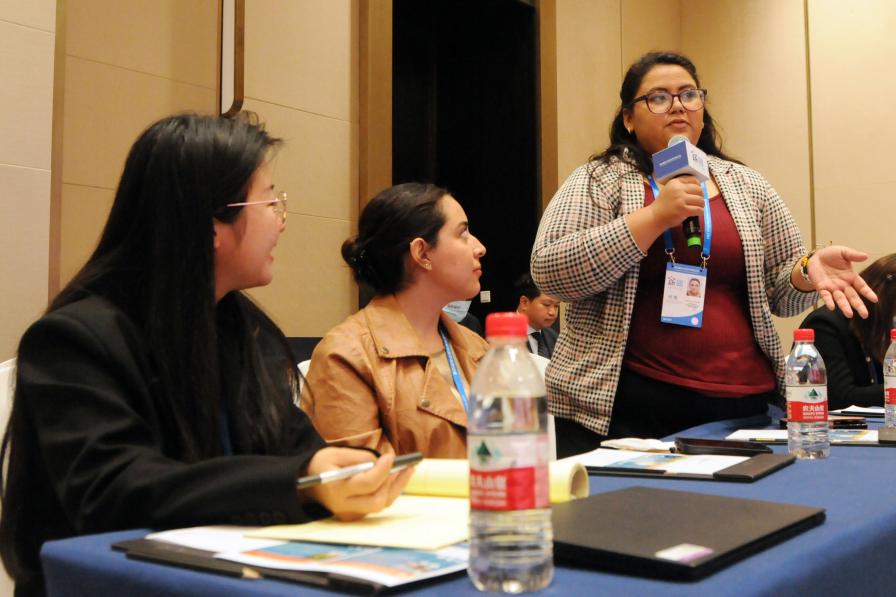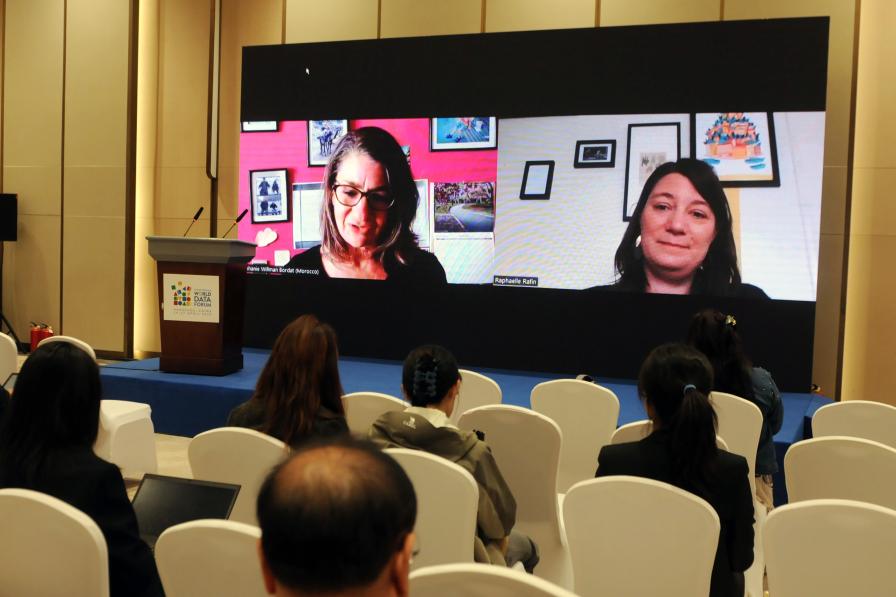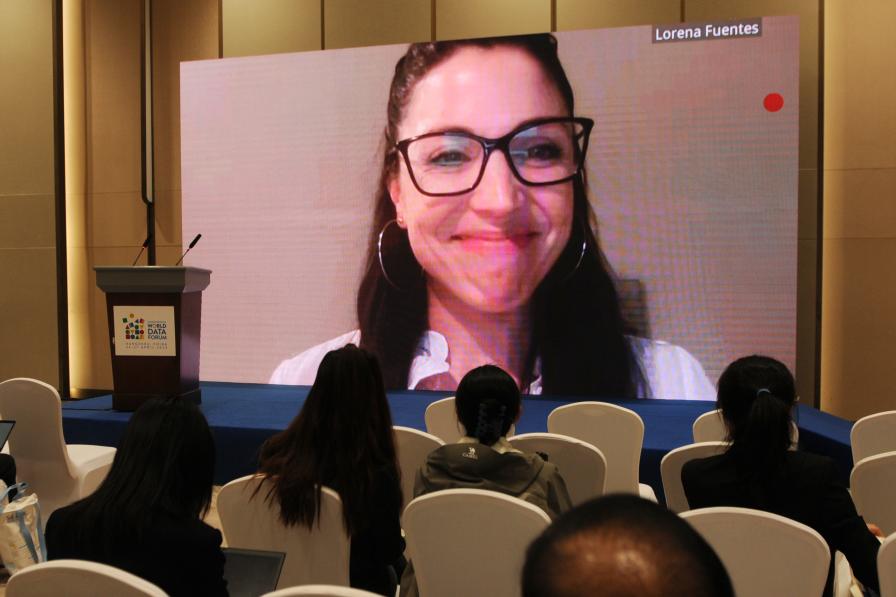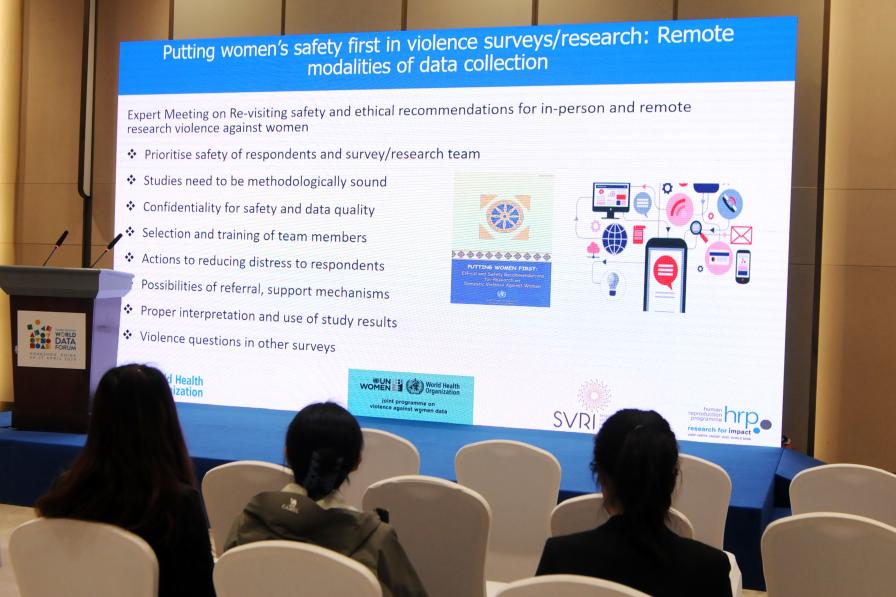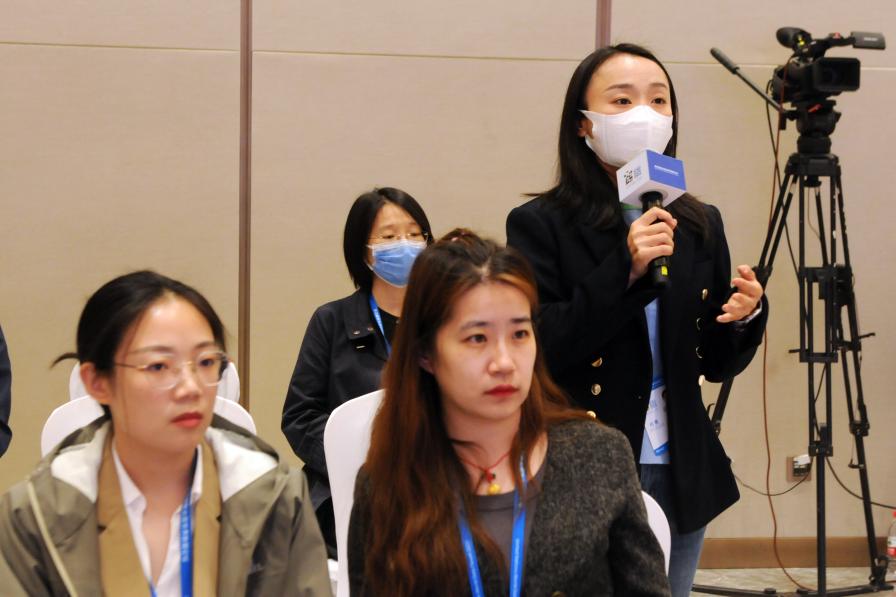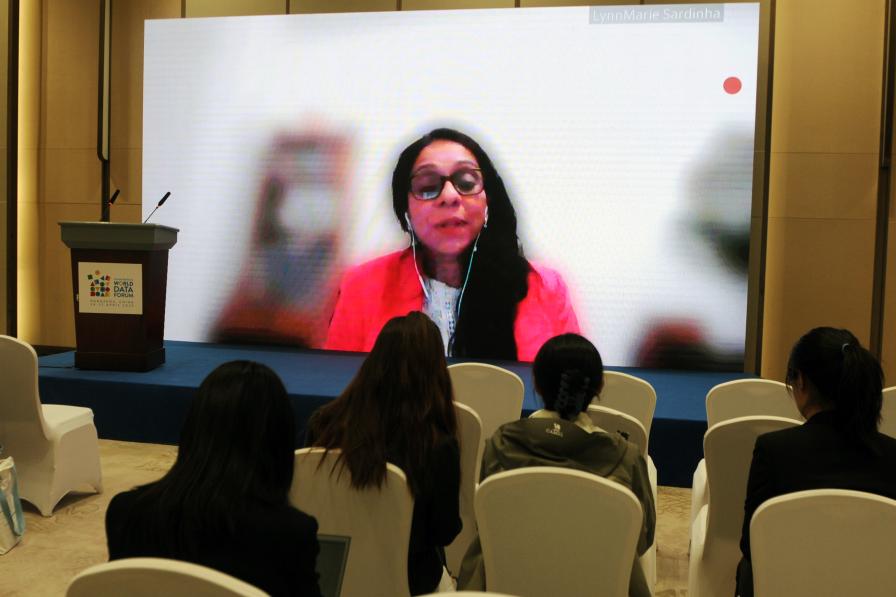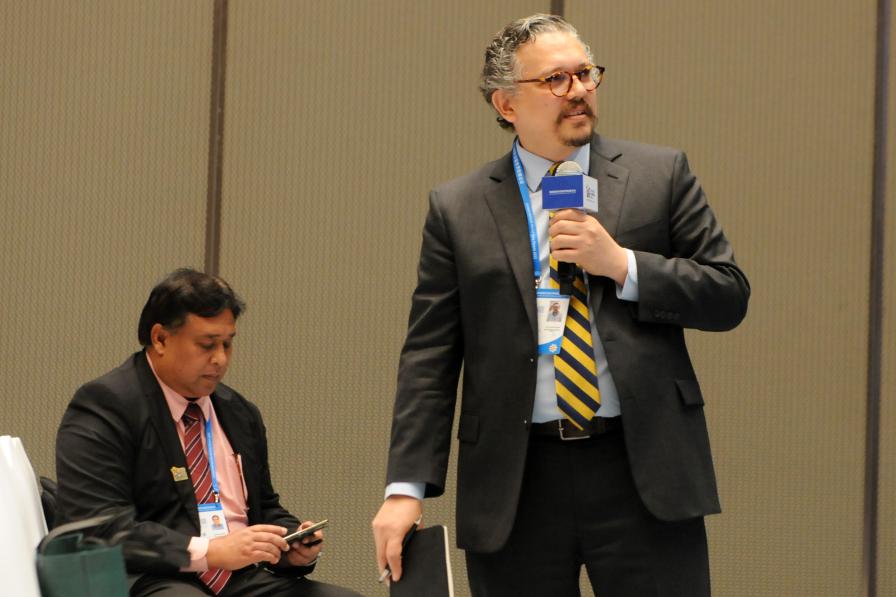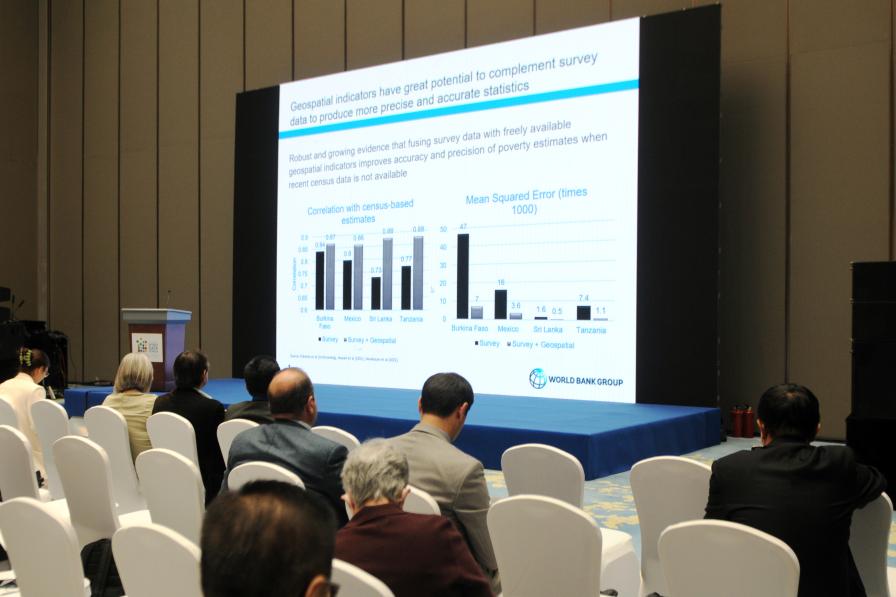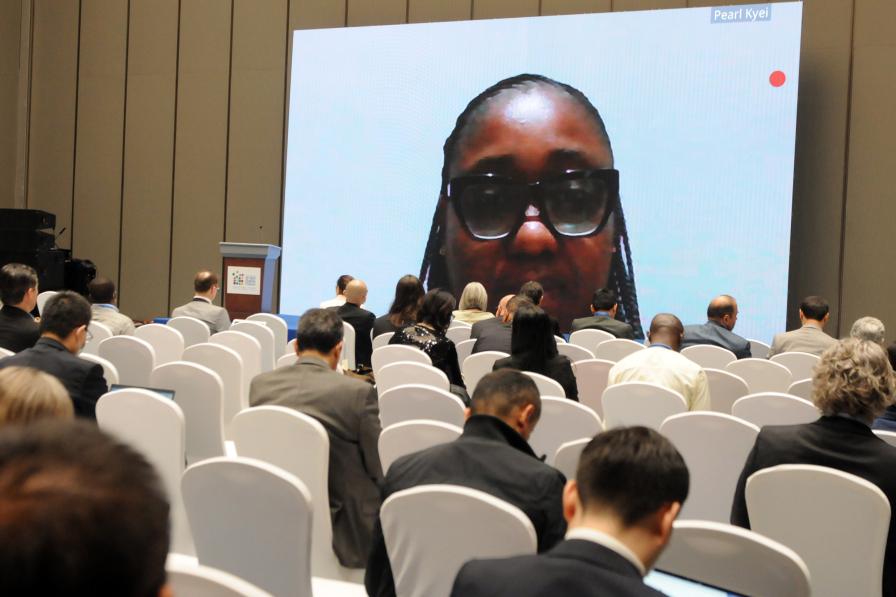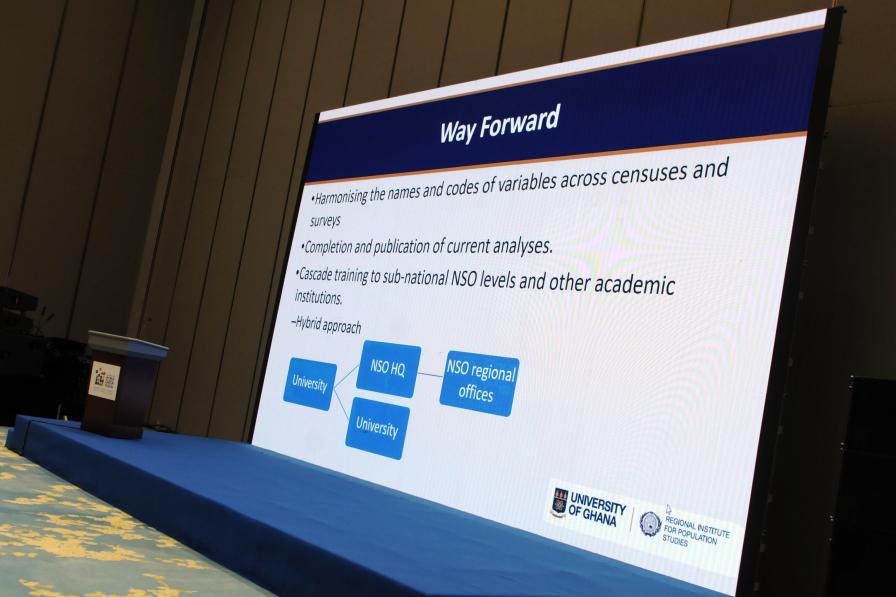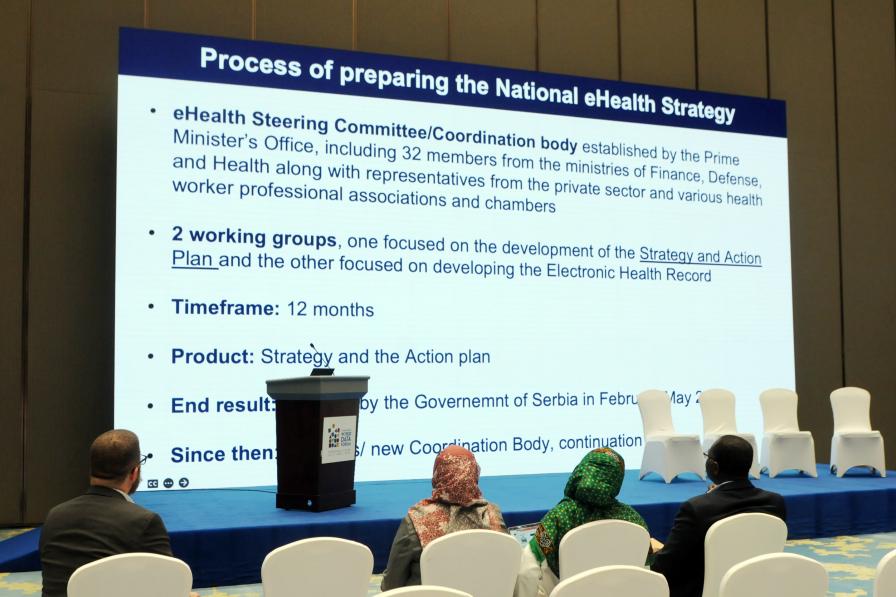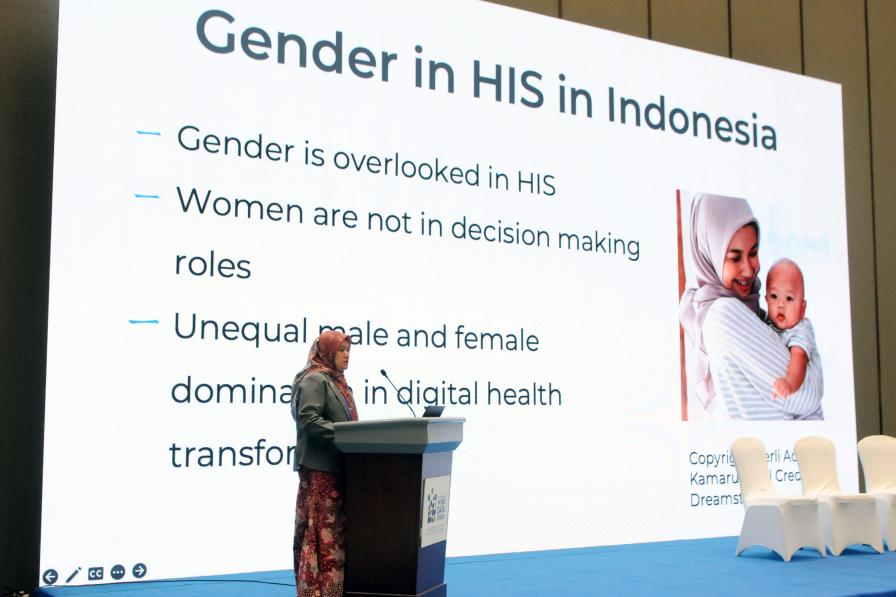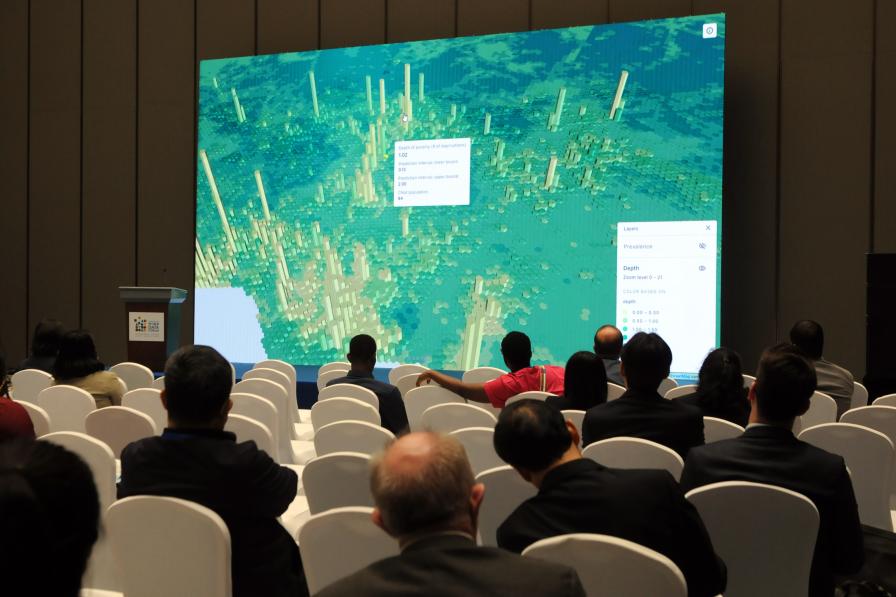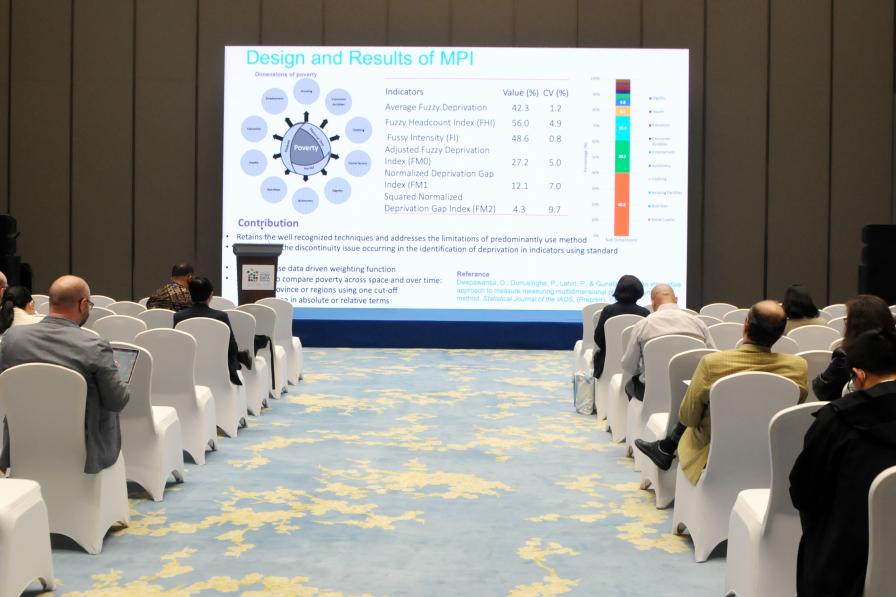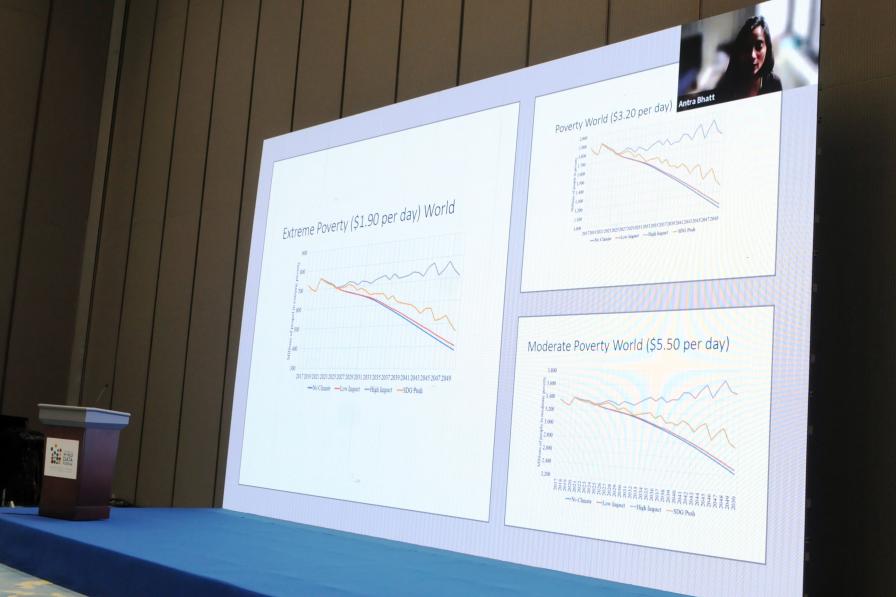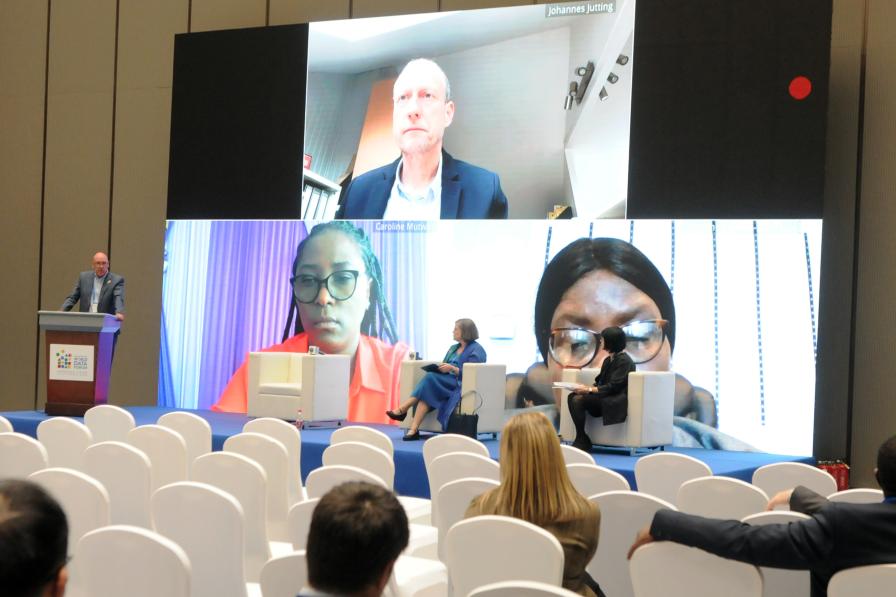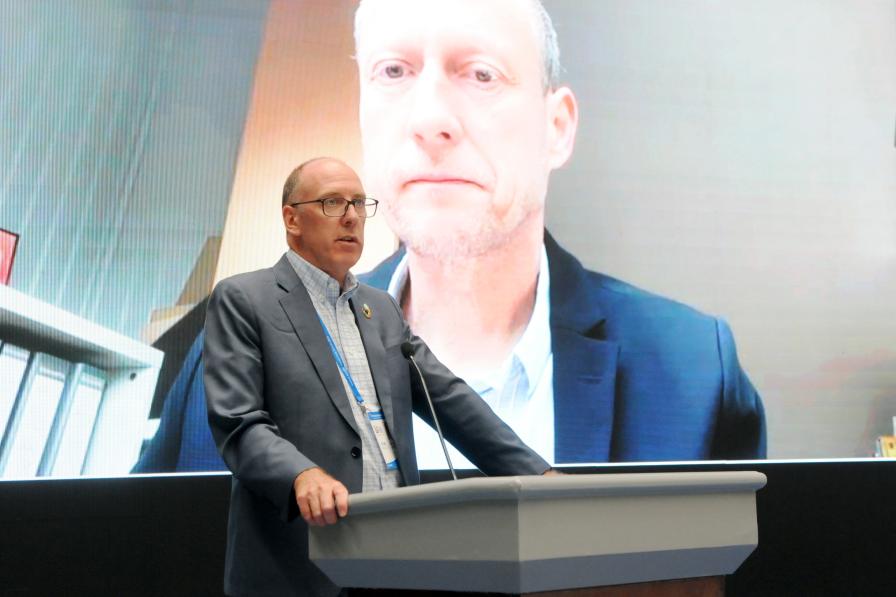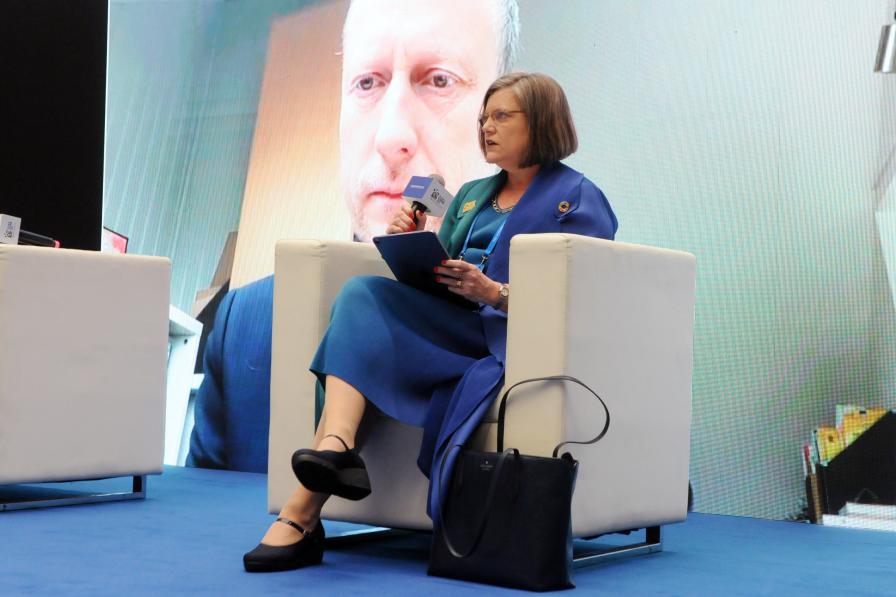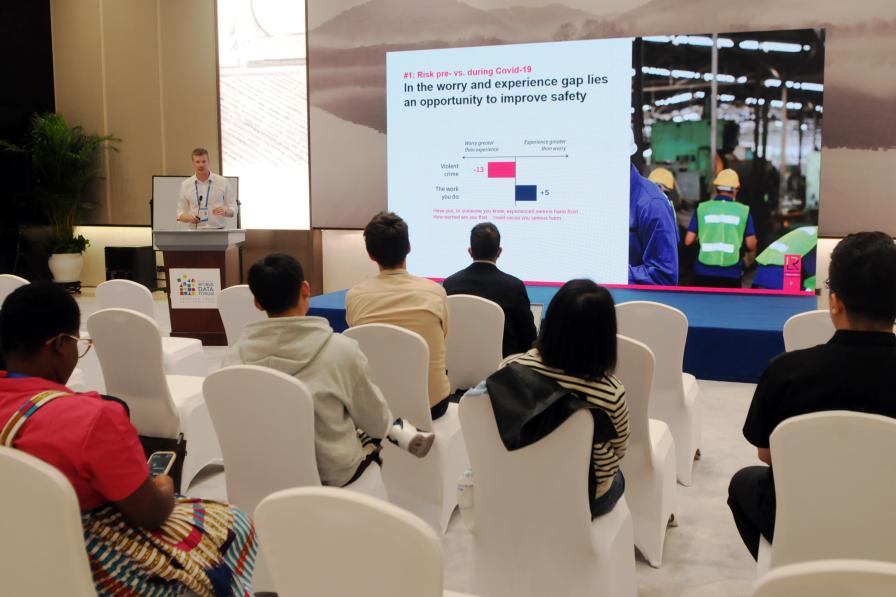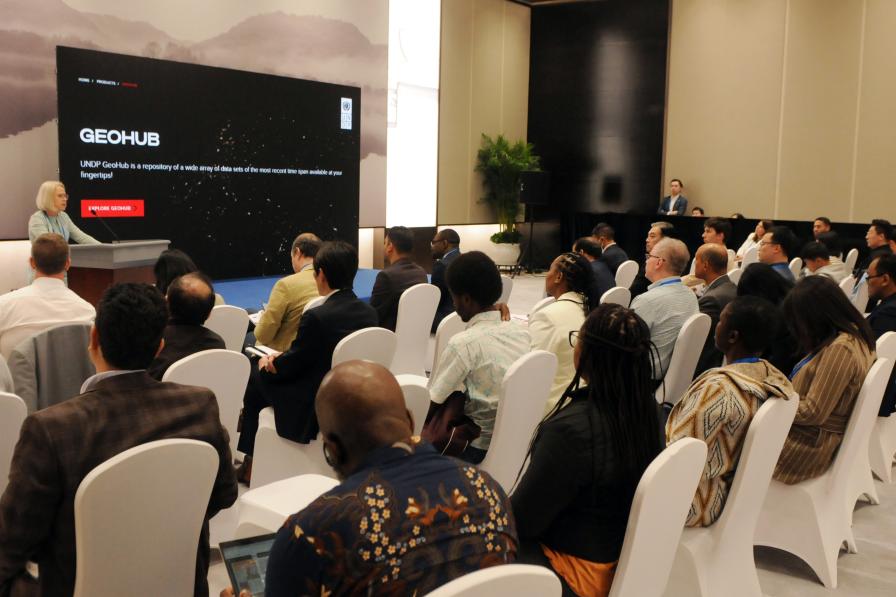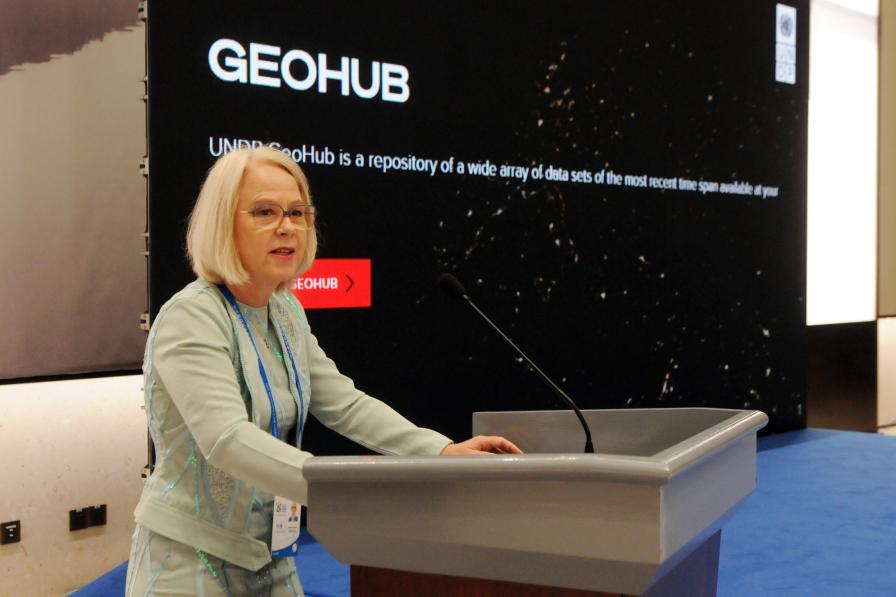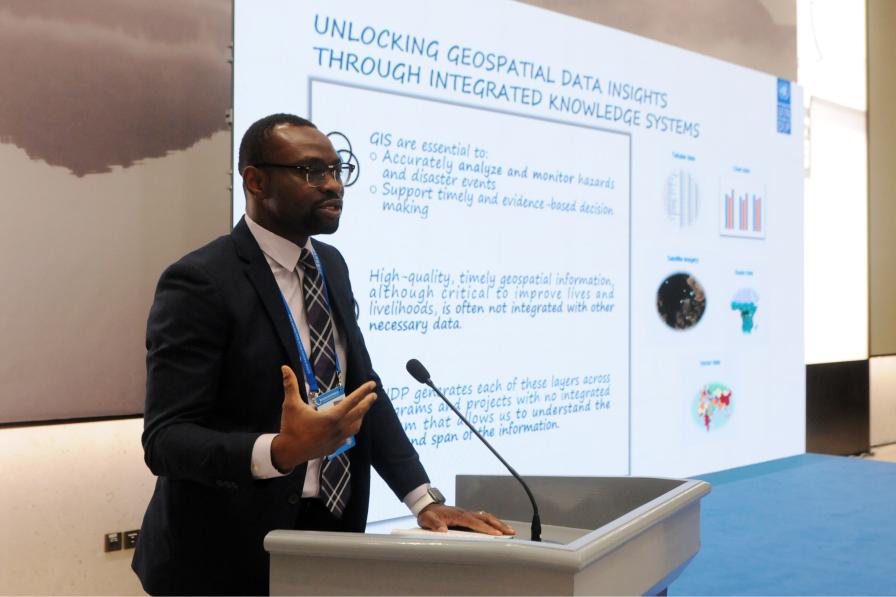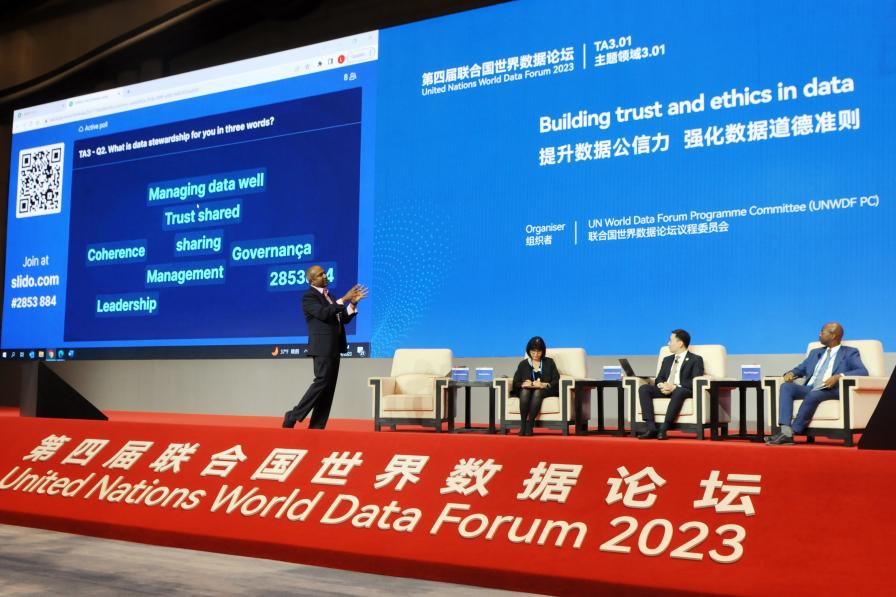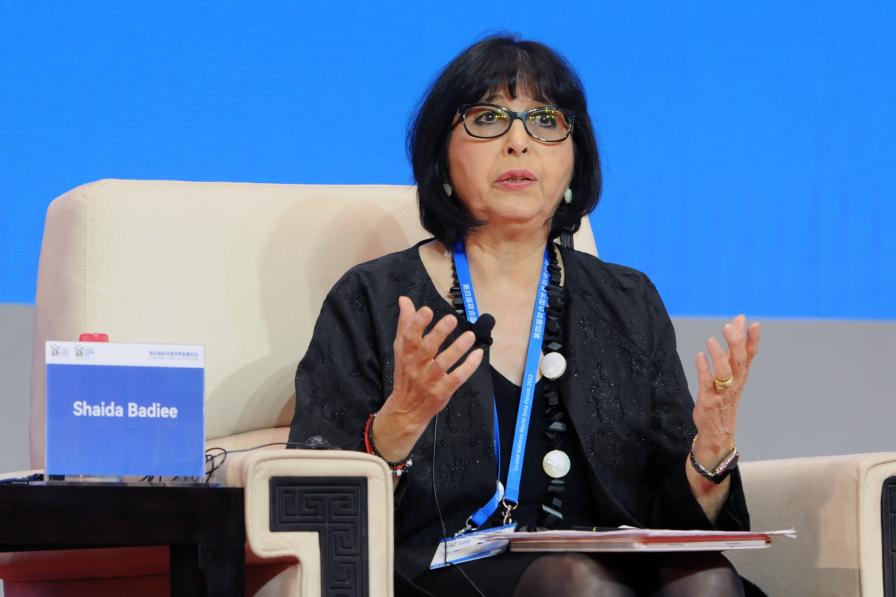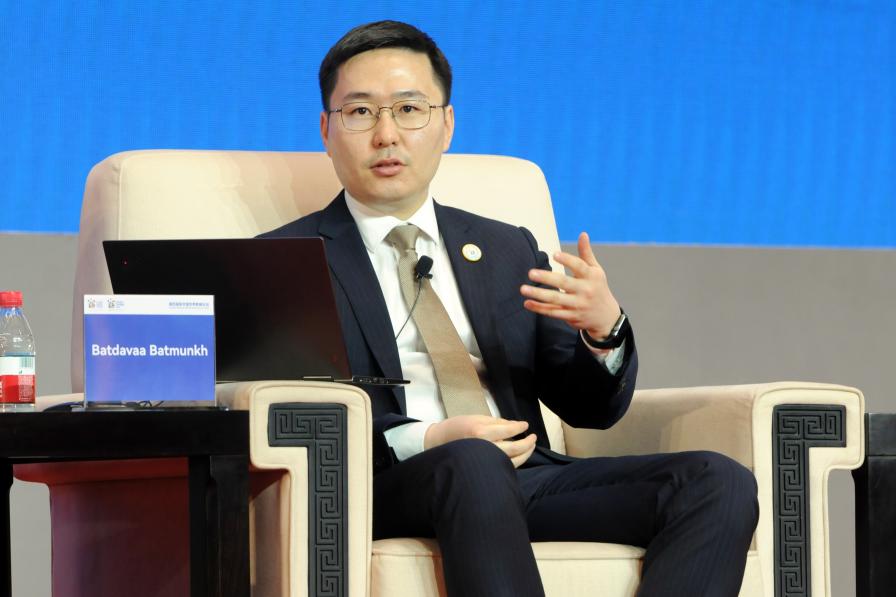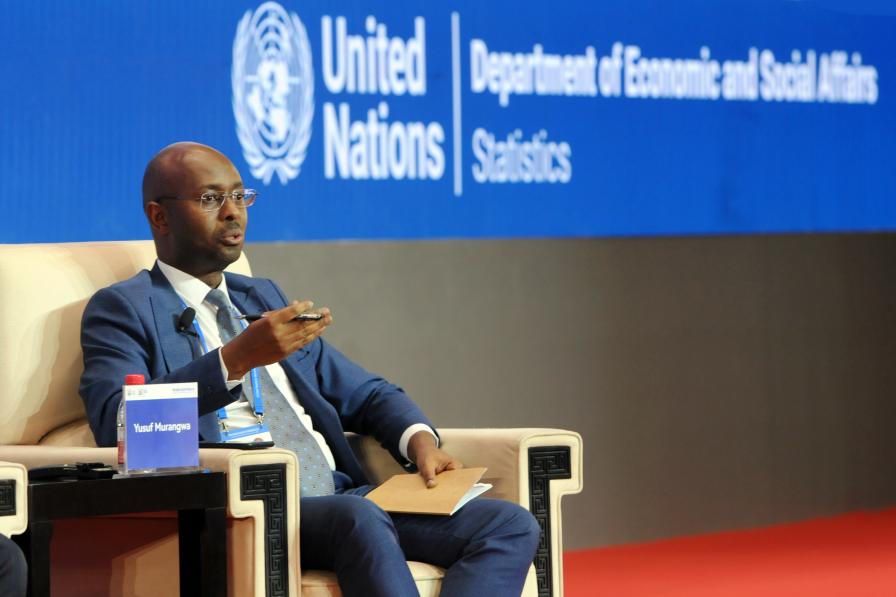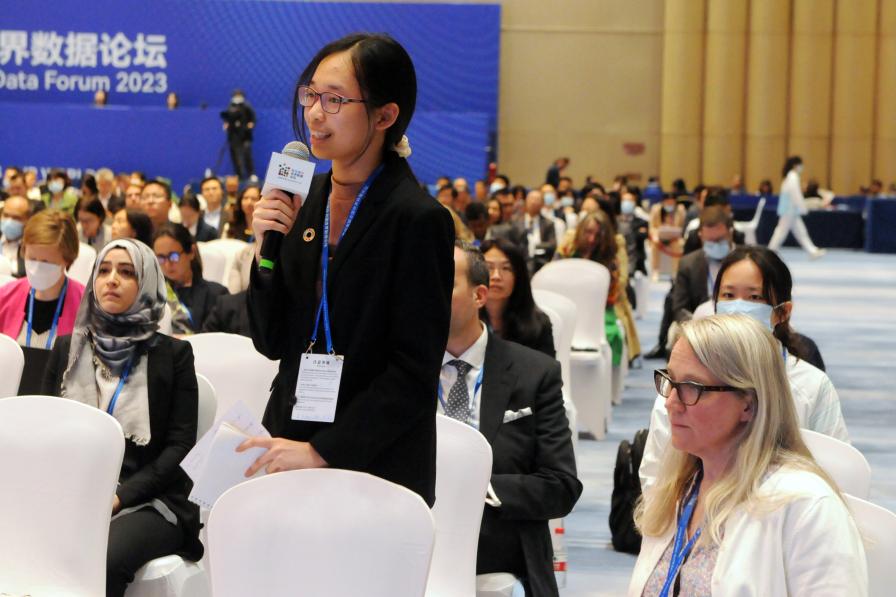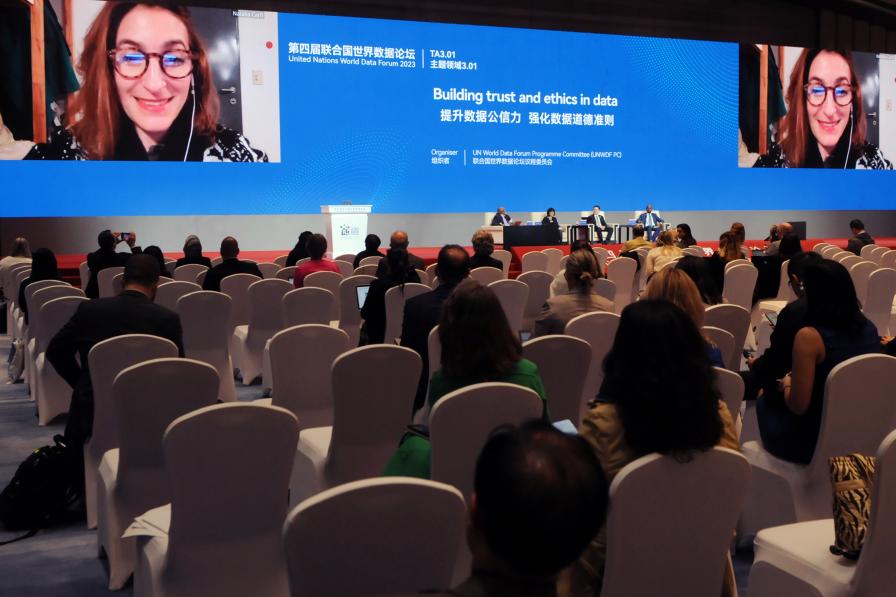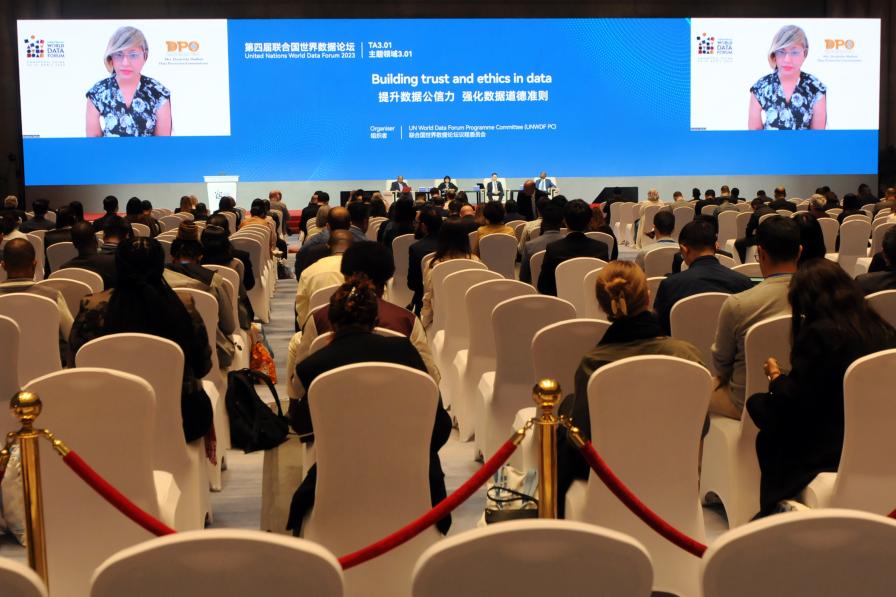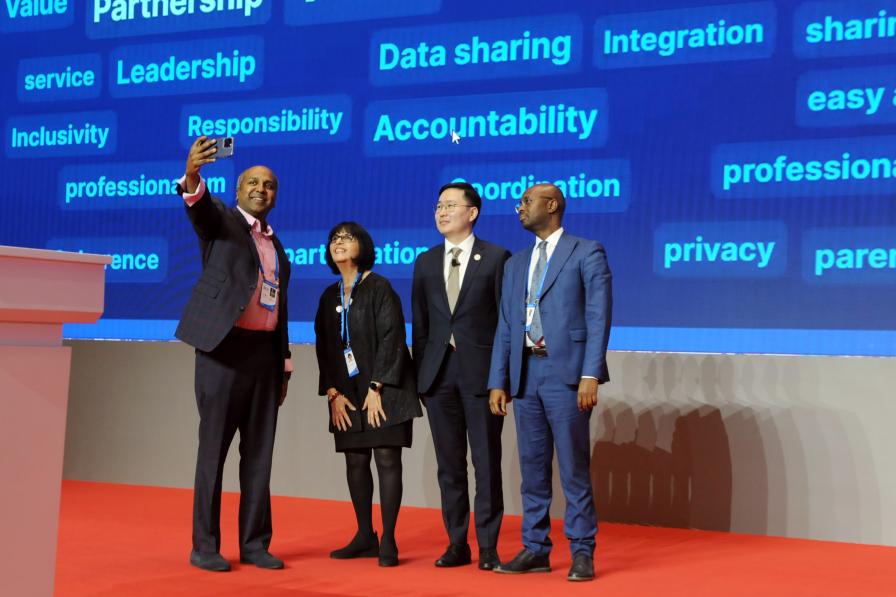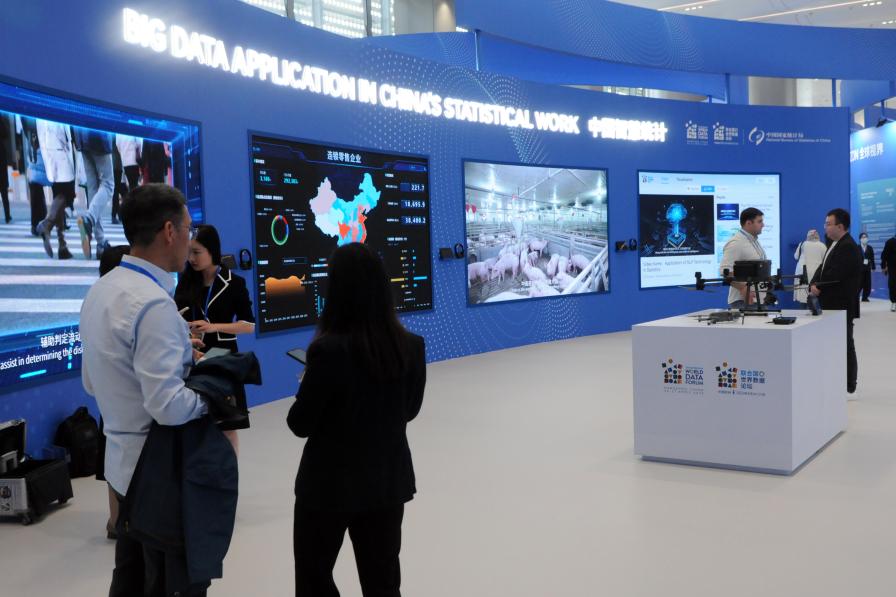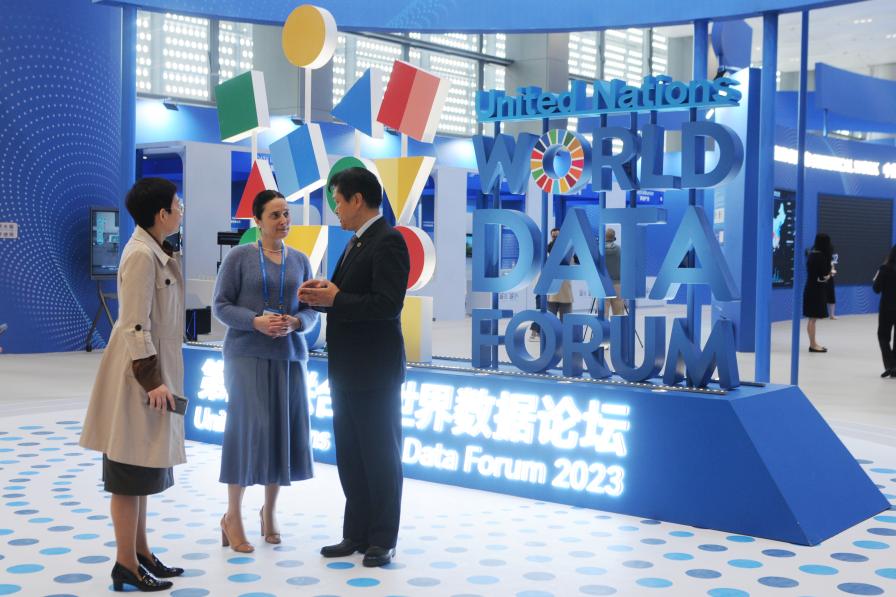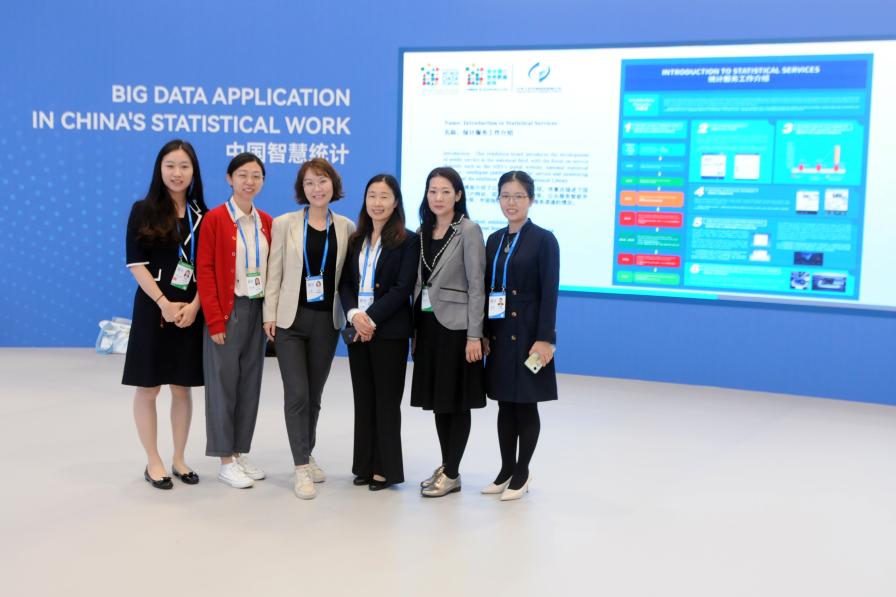On the third day of the fourth UN World Data Forum (UNWDF 2023), delegates focused on opportunities and solutions in data transformations driven, on the one hand, by the urgency of the post-COVID-19 recovery and, on the other, by new global, regional, and local partnerships in the data ecosystem. Parallel sessions and two high-level panel sessions addressed these issues.
High-level Plenary: Maximizing the Use and Value of Data for Better Decision Making
This plenary session discussed political and cultural aspects of the value of data.
Jeanne Holm, Deputy Mayor, City of Los Angeles, US, said accurate data is necessary for city planning and highlighted the necessity of equity to understand the needs of populations.
Chris Maloney, Hewlett Foundation, said that in the hands of policymakers, data is power and unlocking its value depends on who has control over and who can use it.
Miosotis Mercelia Rivas Peña, Director General, National Statistics Office, Dominican Republic, stressed the importance of aligning the production of statistics with national planning and broader sectoral development strategies.
Li Pengde, Vice President, Ministry of Natural Resources, China, highlighted the importance of timing and integration of data with good science.
Zhen Rixin, Alibaba Lingyang, highlighted the infrastructure his company utilizes to provide data and make it more exchangeable across different enterprises and sectors.
Parallel Sessions
Several parallel sessions were held throughout the day on the meeting’s themes. These included:
- Adding Value to Survey Data Through Enhanced Interoperability and Data Integration, which focused on inclusive data needed for more disaggregation and improved interpretation of information;
- Closing the Data Gap: Ethical Measurement of Technology-Facilitated Violence Against Women, focusing on measurements of data on violence against women;
- Keys to Successful Health Information Systems Strengthening, with the sharing of experiences and lessons from Serbia, Niger, and Indonesia on multi-stakeholder engagement and data integration;
- Leveraging Innovations to Measure and Understand Poverty and Inequalities, focusing on poverty mapping with new methods such as geospatial data and machine learning; and
- Preparing for the Next Pandemic, which considered challenges and opportunities in applying a system-wide approach to health data and outlined best practices for health data governance.
The parallel sessions also featured learning labs and demonstrations, including:
- Learning and Teaching Official Statistics with the help of the UN Sustainable Development Group (UNSDG);
- Using the World Risk Poll to Improve Global Safety; and
- Empowering Sustainable Development Goal (SDG) Policy Makers with Spatial Data and Analytics.
High-level Panel: Building Trust and Ethics in Data
This plenary session focused on trust in data pertaining to transparency, openness, and visibility of data.
Shaida Badiee, Open Data Watch, noted that while digital transformation is important, caution is required to apply safeguards for privacy, particularly in the context of open data sources.
Drudeisha Madhub, Data Protection Commission, Mauritius, reported on the Commission’s work in ensuring compliance and enforcement of her country’s data protection legislation, investigation of data breach complaints, and certification of data providers and users.
Batdavaa Batmunkh, Chairman, National Statistics Office, Mongolia, described strategies aimed at data protection in his country to create, among others, visibility of data to users while enhancing transparency.
Natalia Carfi, Executive Director, Open Data Charter, drew attention to the Festival de Datos, planned for November 2023 in Uruguay, as an opportunity to discuss open data with civil society.
Yusuf Murangwa, Director General, National Institute of Statistics (NISR), Rwanda, emphasized the need to demonstrate capacity, legitimacy, competence, and privacy in the data ecosystem.
A Slido survey was offered to participants and revealed that trust, governance, and partnership were identified as key areas for data stewardship.
All ENB photos are free to use with attribution. For the UN World Data Forum 2023, please use: Photo by IISD/ENB | Diego Noguera
To receive free coverage of global environmental events delivered to your inbox, subscribe to the ENB Update newsletter.
